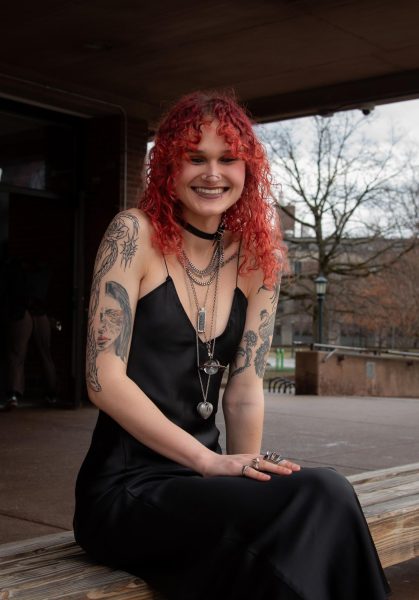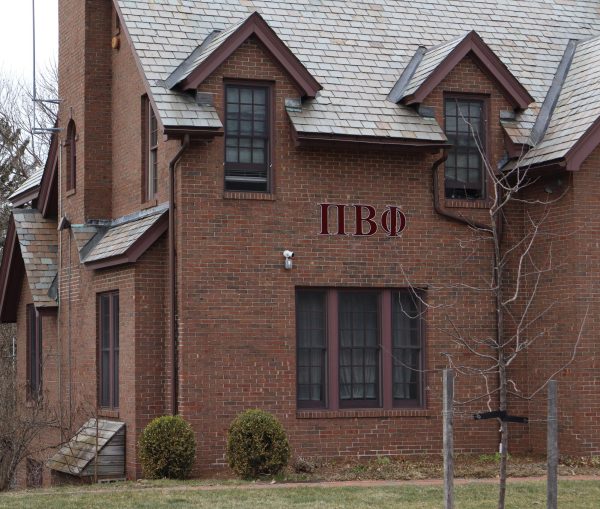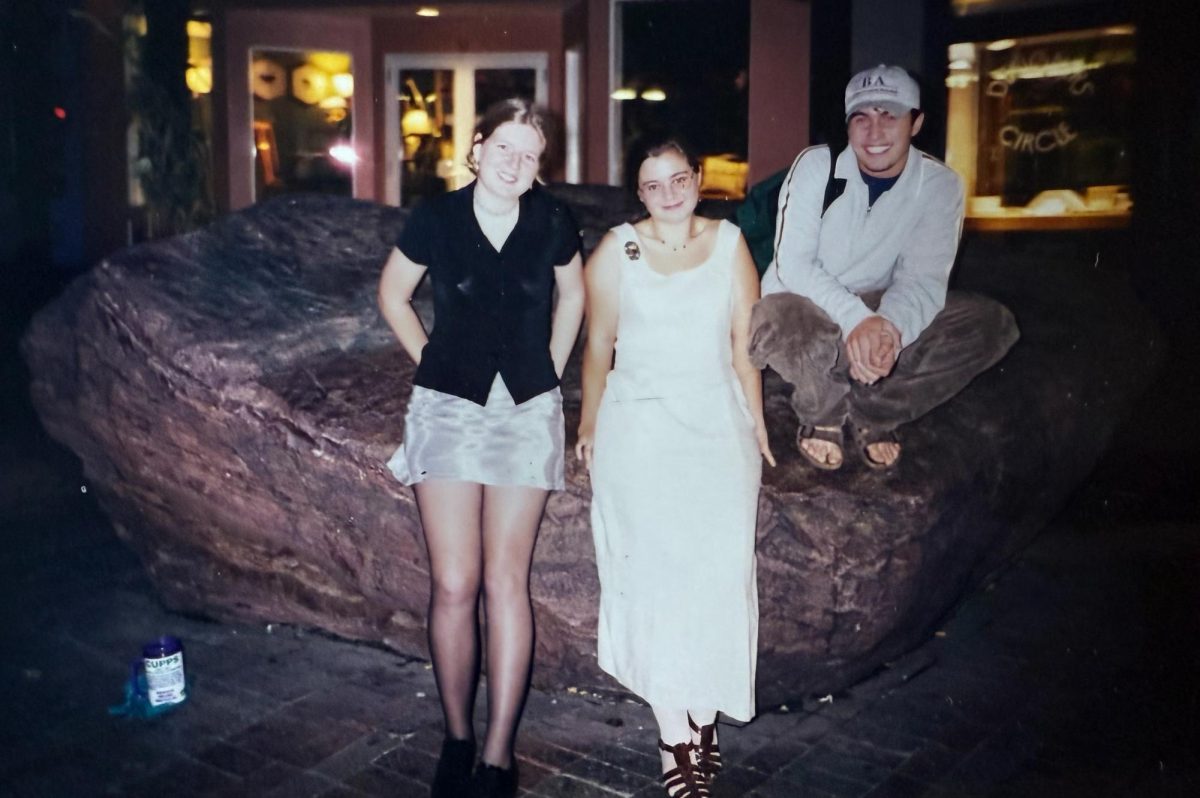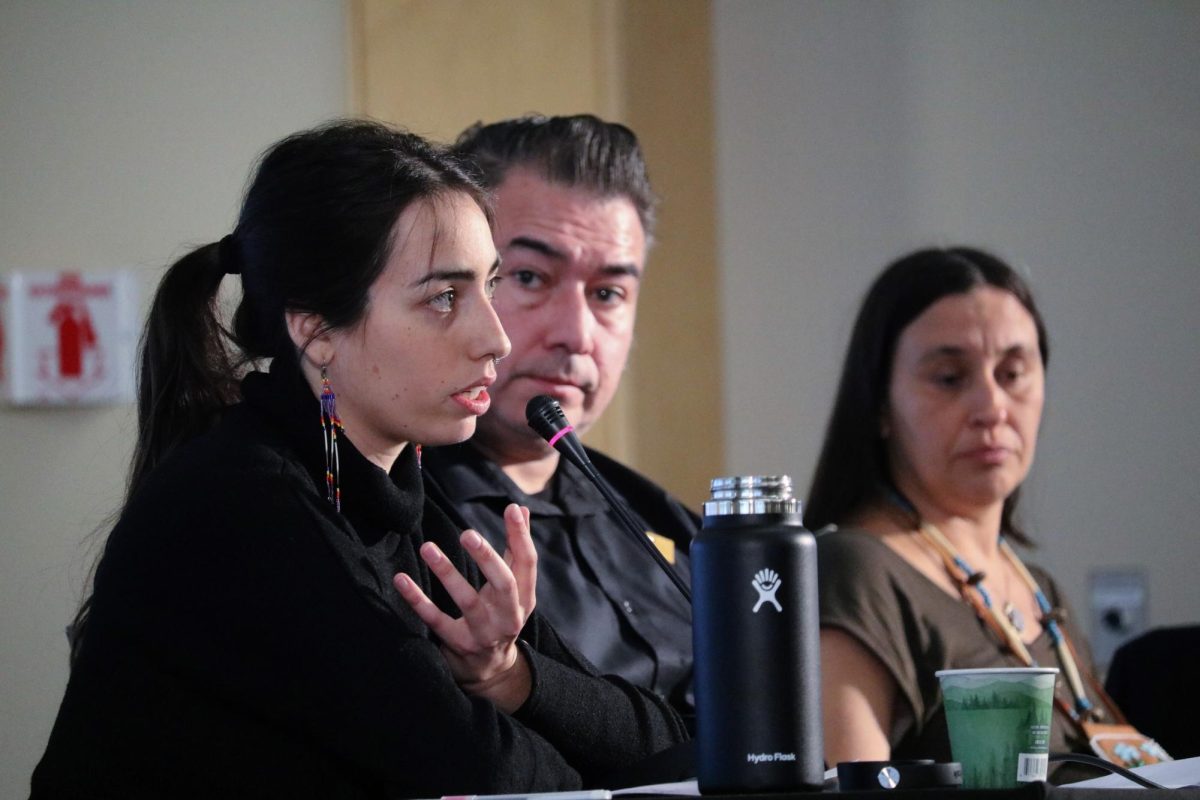From Kake Walking to sexual assault allegations and chapter suspensions, the reputation of fraternity and sorority life at UVM, comprising only 8% of the student population, is complex.
In recent years, fraternities and sororities at UVM have made efforts to promote inclusion, such as a variety of educational workshops and programming unique to each organization, said Emily Bernal, a junior in a diversity, equity and inclusion position in Alpha Delta Pi.
Bernal, a queer student, said she has found a welcoming community in ADPi.
“I’ve been out since I was twelve and wanted to find a space where I would feel accepted. I found that here,” Bernal said.
Sophomore Sabrina Dichiara, also in ADPi, said she has found a sense of belonging within their chapter.
“I was really nervous about it, because I know about all the stereotypes and stigma around Greek life,” she said.
Dichiara has since been involved in the philanthropic opportunities at ADPi and said that the members of the chapter engage with one another like one large family.
“We don’t want to promote hate and we definitely don’t haze,” Dichiara said.
Both Dichiara and Bernal said they did not wish to discredit those who have had negative experiences with Greek life, but emphasized that each person’s relationship to Greek life organizations will be unique.
While some queer students have found belonging in Greek life, others have not had the same experience.
Junior Ashley Golden first came out as transgender right before the start of her junior year of high school, and joined a sorority her first semester at UVM in the fall of 2022.
“I joined a sorority because I didn’t have any of that feminine aspect during my childhood, and I really wanted to experience being in a ‘typically’ feminine space,” she said.
Golden soon discovered through fellow peers in FSL that she may have been the first trans person to ever join a Greek organization here at UVM, she said. She was open about her transness throughout the recruitment process.
However, things started to go downhill once she was officially admitted to Pi Beta Phi.
Golden was asked invasive questions about gender confirmation surgery, found herself having to explain transgender identity to large groups of people and was misgendered by an adult within the chapter, she said.
Golden was also asked to be the vice president of diversity and inclusion at her sorority when she was still just a pledge, she said. On multiple occasions, she was elected to lead workshops on trans issues. These experiences left her feeling tokenized within the chapter.
“Before I’m a woman, before I’m Ashley, before I’m anything that makes me me, I am trans. And that label, that viewpoint, it robs me of identity, and it leaves you feeling othered,” she said.

Towards the end of her first year during a gift-giving event, a senior to whom Golden had no relation gave her a large sign that read: “Dick’s Deli. Stuff yourself with our sausage.” Golden was left feeling humiliated, as it had occurred in front of the entirety of the chapter, she said.
“It was the first time where something had happened that made me really conscious of how othered I truly was in the chapter,” she said.
Though Golden reported the incident, the sorority’s vice president of risk ultimately decided to take no further action, Golden stated in a written witness statement made to the Pi Beta Phi Member Conduct Committee on Feb. 15, 2024.
As her first year ended, Golden said she began to feel less safe in the sorority house, but was required to live there her sophomore year despite sharing that it had negative ramifications on her own mental health.
House members told Golden that if she refused to pay to live there, they would charge the entirety of the year’s rent to her, which totaled $11,000, she said.
“Why wasn’t I willing to speak up?” she said. “It’s because I didn’t want to. I was already the trans girl. I didn’t want to be the trans girl that caused issues.”
Struggling with her mental health, Golden skipped many recruitment events, only to be urged by an older member to attend for the sake of diversity, reinforcing her feelings of tokenization.
“She goes, ‘well, I just think it’s really important that people see someone like you being a member of our sorority,’” Golden recalled a fellow Pi Beta Phi member telling her.
Golden believes her negative experiences were not a reflection of her specific chapter, but Greek life as a whole. She officially disaffiliated from the chapter midway through her sophomore year after living in the house for a semester.
“If I had reported the incidents while I was in the chapter, it would have been a horrific mess of attention and accusations and hatred and drama. And since I reported it when I was no longer a member, they no longer had any obligation to do anything about it, and in result, silenced the whole thing,” Golden said.
Despite her negative experiences, she says she does not ultimately regret being in a sorority, because it made her who she is today.
“It made me recognize that I don’t have to pretend to be the type of woman that I’m not. My femininity, my womanhood is still valid, even if I’m not in a sorority, even if I am not like the picture-perfect ideal of femininity,” she said.
In his role as assistant director for fraternity and sorority life, Mister Clemmones serves as a point of contact between students and administration. After being in a fraternity during his time as an undergraduate at the University of Mississippi, he decided he wanted to work in FSL.
“Being black and queer in this heteronormative space, I was like, ‘am I going to be accepted?’ And they never made me feel like I wasn’t accepted,” he said.
Clemmones credits his role as being one that supports students through FSL and the Equal Opportunity Office.
“Here at UVM, it is very unique, which is something I love about it,” he said. “I do think a lot of our members in our community do identify as queer, and they are able to find an organization that fits best with them and their identity.”
Other students have taken a more directly oppositional approach to Greek life.
Syd Partin, who graduated from UVM in 2023, is one of the founding members of Students Against Institutional Violence, a student activist group that advocates for survivors of sexual violence on campus and has been outwardly critical of FSL.
Though they were never a member of a fraternity or sorority, Partin became an outspoken critic of Greek life after they were drugged and sexually assaulted by a fraternity member in the spring of their first year at UVM, as they alleged in a 2022 lawsuit against the University.
Partin was one of four plaintiffs suing UVM for its alleged noncompliance with Title IX rules, though Partin’s claims were the only ones directly involving Greek life.
Despite efforts from the University to dismiss the suit, Partin’s case is still pending, said John Evers, a lawyer representing the plaintiffs.
Following their assault, Partin went to the UVM Medical Center to receive testing for date rape drugs along with a rape kit. The on-call physician assistant was dismissive of their conerns and refused to order either a drug test or a rape kit, according to court documents.
Alongside fellow members of SAIV, Partin helped organize protests and walk-outs from 2021-2023 for survivors of sexual violence.
Since graduating in 2023, Partin has remained involved with SAIV.
“We are a collective of students and alum committed to the abolition of fraternities and sororities at UVM due to their inextricable dependence on discrimination, misogyny and sexual violence,” said Partin.
Years later, Partin continues to spread awareness on the pervasiveness of sexual violence within Greek life through social media.
The lawsuit detailed that after publicly posting about their story on social media, UVM Title IX eventually reached out, though they claimed that they could do very little about Partin’s experience because the person who assaulted them transferred and was no longer a UVM student.
Committed to receiving justice, Partin carried a poster everyday for two years which read: “UVM HID MY RAPE, ” according to a Sept. 22, 2021 Cynic article.
Partin sees misogyny and sexual violence as constitutive aspects of Greek life.
“In a perfect world, I would like to see Greek life no longer exist. It’s a normalized white supremacy group. Those are really strong words. I know that, and I stand by it,” they said. “There’s no way to take such things as racism and misogyny out of those policies and those practices and have it still remain the same thing.”

(Sarah Koegler)
In recent years, many fraternities and sororities in the U.S. have seen decreased membership levels, according to an April 23, 2021 Vox article.
Some view Greek life as a space that has a long history of racism and a promotion of heteronormativity and strict gender norms.
A vast majority of Greek organizations are primarily composed of white individuals, according to the Vox article.
“They’re deeply political, whether people like to acknowledge that or not,” Partin said.
Junior Kaley Pham is the president of UVM’s Pi Beta Phi chapter and said that the issue of discrimination and homophobia in Greek life is incredibly polarized.
“I have friends who consider themselves anti-Greek, and we have many conversations with each other. I think continuing to have conversations surrounding the topic is what is most important to create less of a divide,” she said.
Clemmones sees a future of positive change in Greek life, both at UVM and nationwide.
“The ball is moving slowly, but it is moving,” he said. “I believe because of the conversations that chapters are having, that’s how it can reach to that national level for them to change.”
However, for some queer students, concerns about acceptance remain.
“What I struggle with is that there were people in the chapter who were genuinely, truly kind to me. But the issue is that it only takes a couple of people to do bad things and to make a space unsafe for a minority,” Golden said.
Editor’s note: Ashley Golden is currently an opinion columnist for the Cynic.














